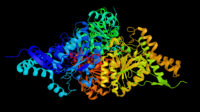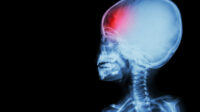The North American Pharmacist Licensure Examination (NAPLEX) is designed to test prospective pharmacists on different skills needed to make sound decisions in optimizing therapeutic outcomes for their patients. This exam tests abilities to identify and determine safe methods to prepare and dispense medications and supply accurate health care information to provide optimal health care.
In addition to studying key concepts, a vital way to prepare for the NAPLEX is with practice questions. Taking sample NAPLEX test questions will help you prepare for what to expect on test day. Here are some tips to help you break down a NAPLEX question:
Read the Question
When first analyzing a question, read the entire question first without looking at the answers. The first answer that pops into your head is usually correct. If your initial answer is a listed option – go with that and don’t second guess yourself.
Break Down the Question
Now, if your initial guess is not listed then you have some more work to do. You have to pull all of the information you have about each answer. From that base knowledge, you can start analyzing the answers and either eliminate or keep answers around. If you have no idea about the answer, then break it down.
Try this sample question taken from the BoardVitals NAPLEX board review question bank.
Which of the following medications do not cause drug-induced hypertension?
- Prednisone
- Meloxicam
- Cocaine
- Pioglitazone
- Cyclosporine
Cross Off Incorrect Answers
Prednisone can cause hypernatremia and fluid retention, potentially raising blood pressure (eliminate A). NSAIDS can block COX-1 and COX-2 leading to decreased prostagladin formation. These changes affect the kidneys potentially leading to increased blood pressure, fluid retention and sodium retention (eliminate B). Cocaine stimulates alpha and beta receptors leading to increased heart rate and blood pressure (eliminate C). Pioglitazone is a diabetic medication to control blood sugar. Pioglitazone does not seem to be a medication that would affect blood pressure at first thought. I would mark this answer and read the rest because I am unsure if it causes drug-induced hypertension. Cyclosporine has a huge risk of drug-induced hypertension, but it is an uncommon drug so let’s say you cannot recall much about it.
Down to 2. We have eliminated answers A, B, and C. We are choosing between answers D and E. Now we need to think of everything we know about these two drugs. I can tell you for sure that pioglitazone is a TZD to treat diabetes. It is contraindicated in heart failure, but you cannot recall anything about hypertension. Fluid retention is a potential side effect potentially leading to heart failure and also a risk of bladder cancer. Then you move on to cyclosporine and a drawing a blank. I would tell myself that I know a lot about pioglitazone and could not remember anything about hypertension. I cannot remember anything about cyclosporine so answer E has the highest probability of causing drug-induced hypertension. I would pick and answer D, pioglitazone, as the medication that does not cause drug-induced hypertension.
This BoardVitals NAPLEX board review question bank has 1,450+ review questions written and reviewed by licensed pharmacists who have recently taken the exam. Each question comes with detailed explanations, like the one featured above. Start studying with a free trial.




